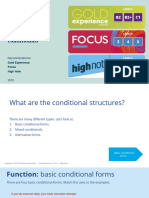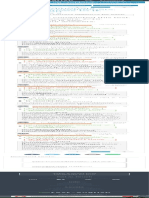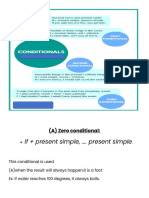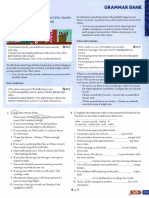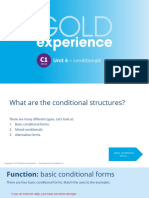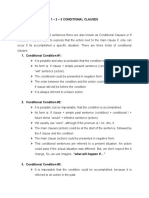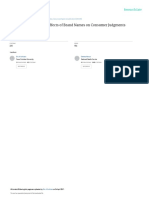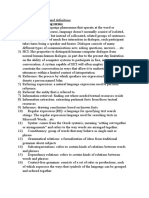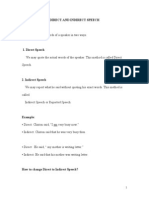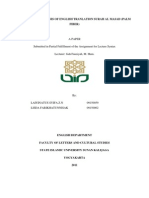0% found this document useful (0 votes)
0 views8 pagesMixed Conditionals
The document contains exercises focused on mixed conditional sentences, requiring the completion of sentences with appropriate verb forms. It includes explanations for each answer, detailing the grammatical rules applied for past and present hypothetical situations. The exercises aim to enhance understanding of conditional structures in English grammar.
Uploaded by
Piotr TameczkaCopyright
© © All Rights Reserved
We take content rights seriously. If you suspect this is your content, claim it here.
Available Formats
Download as ODT, PDF, TXT or read online on Scribd
0% found this document useful (0 votes)
0 views8 pagesMixed Conditionals
The document contains exercises focused on mixed conditional sentences, requiring the completion of sentences with appropriate verb forms. It includes explanations for each answer, detailing the grammatical rules applied for past and present hypothetical situations. The exercises aim to enhance understanding of conditional structures in English grammar.
Uploaded by
Piotr TameczkaCopyright
© © All Rights Reserved
We take content rights seriously. If you suspect this is your content, claim it here.
Available Formats
Download as ODT, PDF, TXT or read online on Scribd
/ 8










